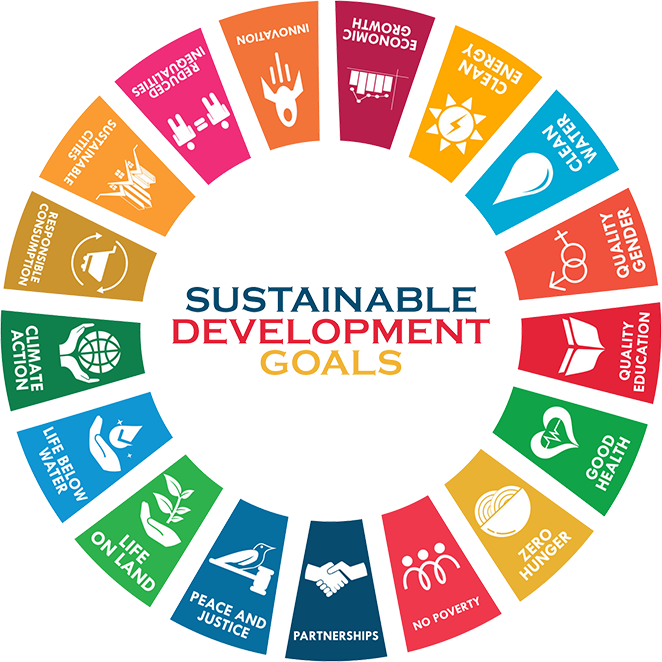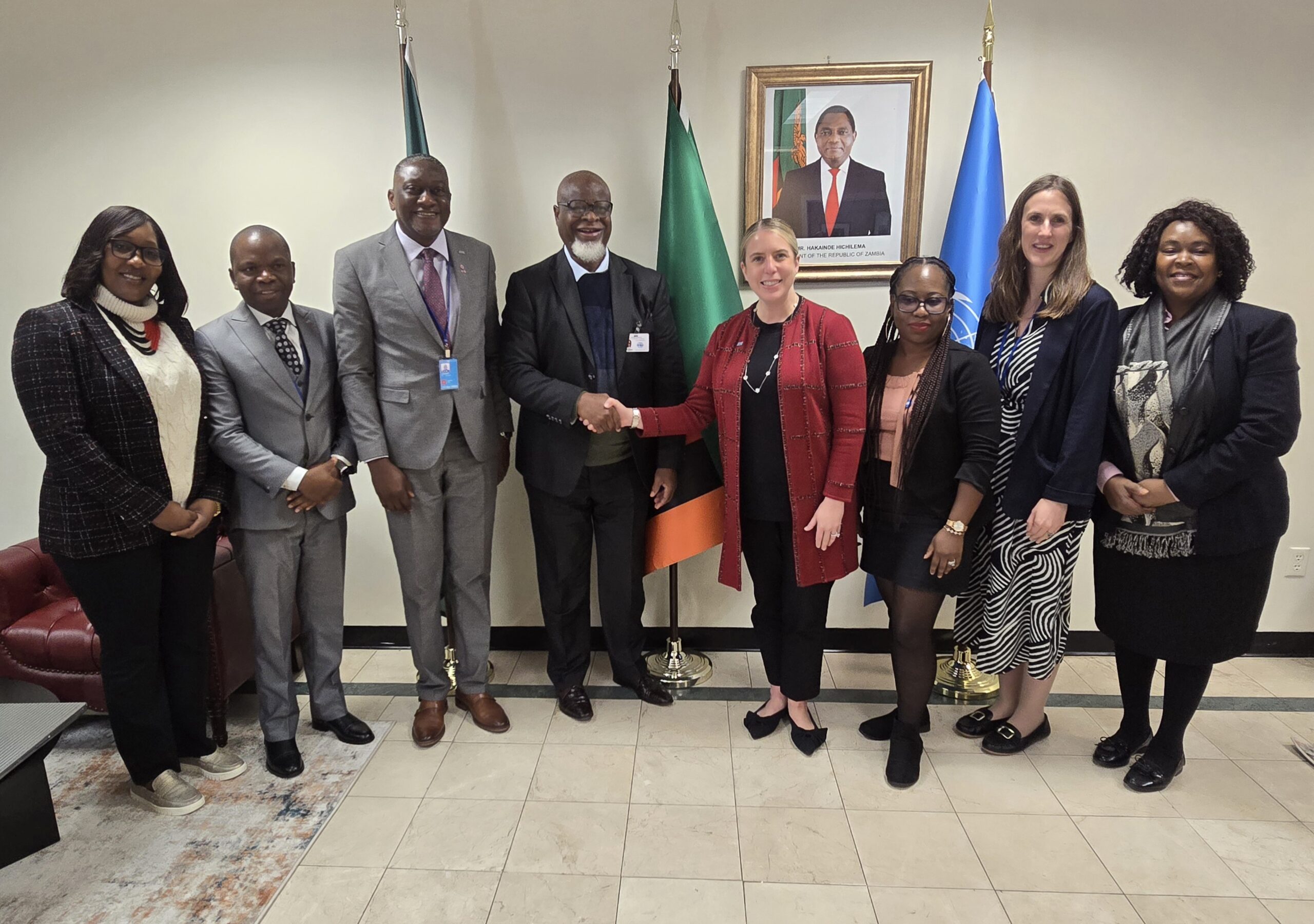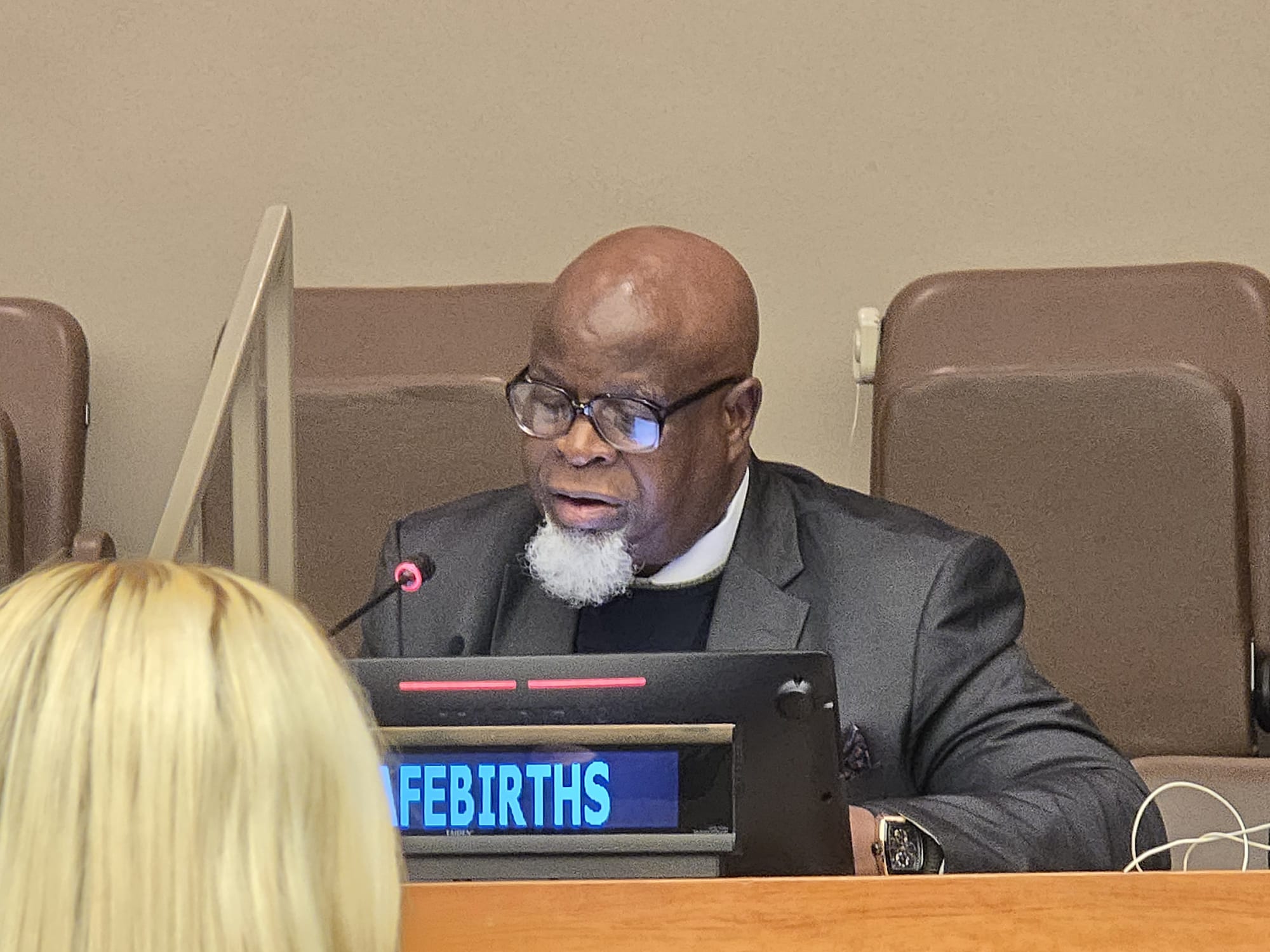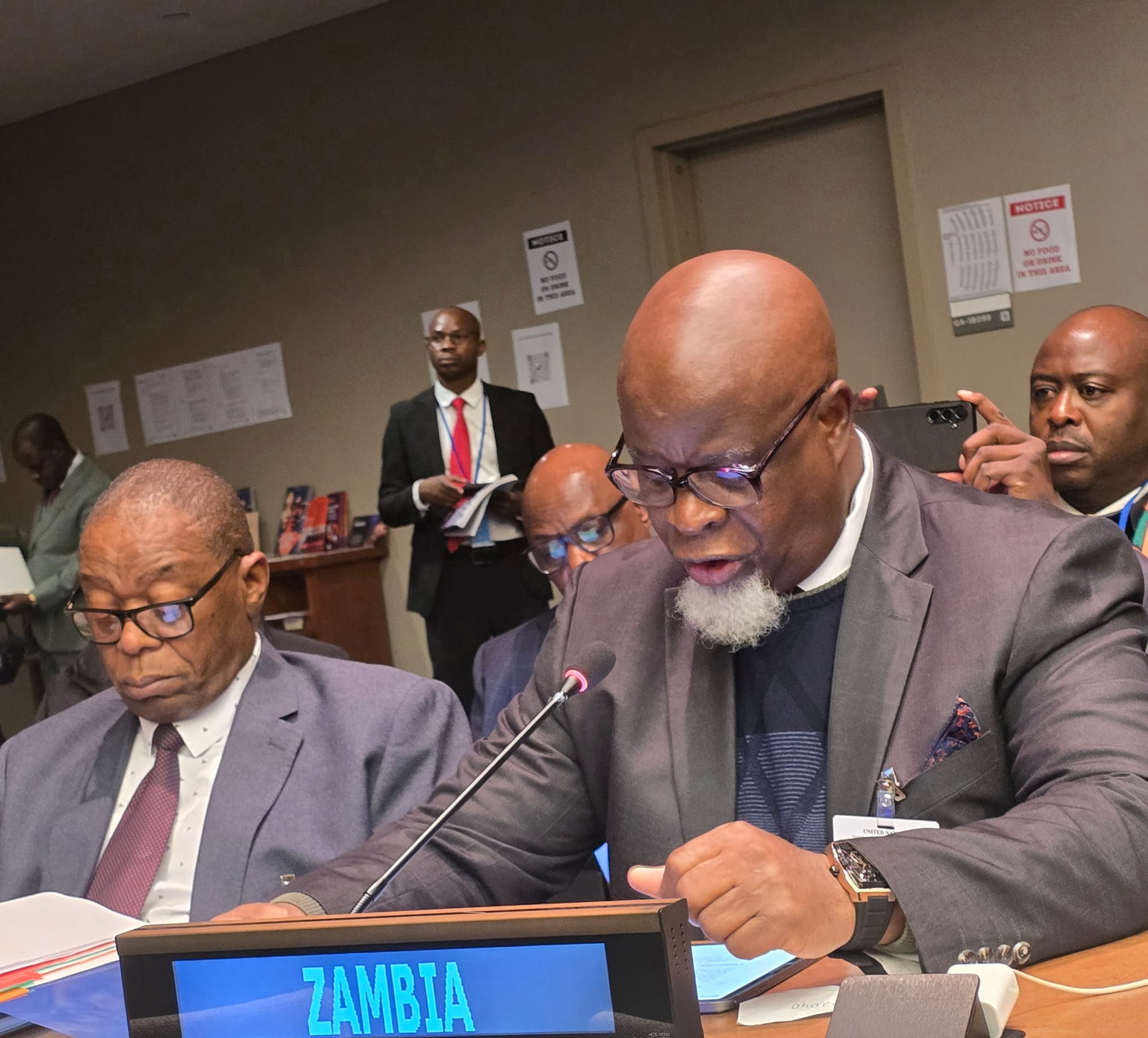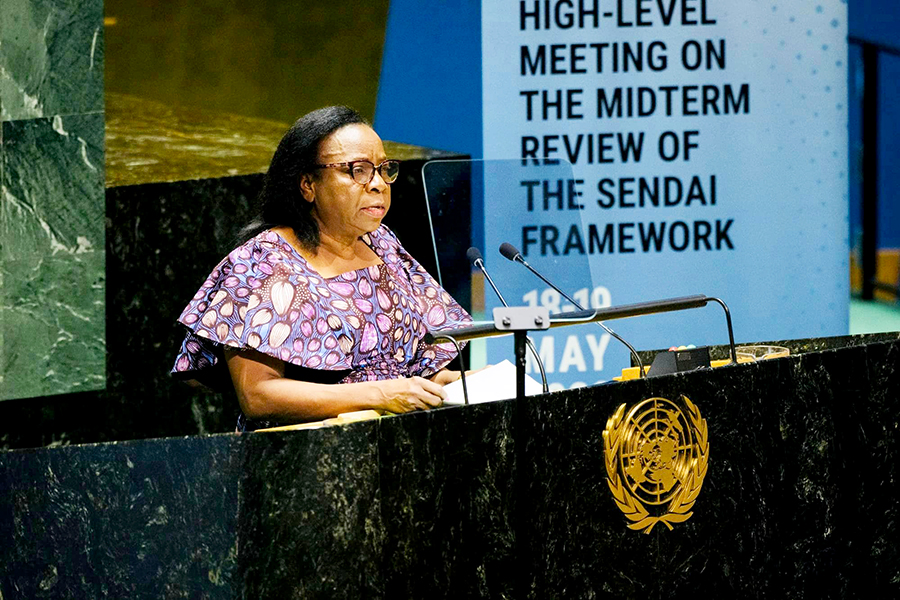 Zambia’s Vice President W. K. Mutale Nalumango attended the United Nations General Assembly meeting in New York on the Midterm Review of the implementation of the Sendai Framework for Disaster Risk Reduction. At the event, the Vice President highlighted Zambia’s support to the implementation of the Sendai Framework.
Zambia’s Vice President W. K. Mutale Nalumango attended the United Nations General Assembly meeting in New York on the Midterm Review of the implementation of the Sendai Framework for Disaster Risk Reduction. At the event, the Vice President highlighted Zambia’s support to the implementation of the Sendai Framework.
The Vice President expressed solidarity with the Political Declaration of the Midterm Review of the Sendai Framework which was adopted by consensus during the opening session of the meeting on May 18.
During the conference that took place at the UN Headquarters, the Vice President delivered the national statement in the General Debate plenary in which she called for enhanced international support in integration of Disaster Risk Reduction in the implementation of relevant sustainable development policies.
“We acknowledge and applaud the Secretary General’s call to protect everyone on earth through universal coverage of early warning system. However, most developing countries lack sufficient investments in forecasting and early warning systems for effective and comprehensive early action, including disaster preparedness and response,” she said.
In her debate, the Vice President highlighted the key measures Zambia has undertaken to strengthen Disaster Risk Management in the context of the climate change discourse.
Some of the measures are the establishment of a robust multidimensional disaster management structure at all levels of society and government that allows for the participation of both state and non-state actors in Disaster Risk Management.
The Government has also incorporated Disaster Risk Reduction into development planning to ensure that the National Development Framework is risk informed.
She said the Zambian delegation was in support of the adopted text which would enable Member States to accelerate implementation of the Sendai Framework.
Background
The Sendai Framework for Disaster Risk Reduction 2015-2030 is a 15-year global agreement to reduce, prevent and respond to disaster risks across the globe. Adopted by UN Member States at the Third UN World Conference in Sendai, Japan on 18 March, 2015, the Framework recognizes the primary role of states in reducing disaster risk while highlighting that responsibility should be shared with local governments, the private sector and other stakeholders.
The Sendai Framework sets out seven global targets, namely:
- Substantially reduce global disaster mortality by 2030, aiming to lower average per 100,000 global mortality between 2020-2030 compared to 2005-2015
- Substantially reduce the number of affected people globally by 2030, aiming to lower the average global figure per 100,000 between 2020-2030 compared to 2005-2015
- Reduce direct disaster economic loss in relation to global gross domestic product (GDP) by 2030
- Substantially reduce disaster damage to critical infrastructure and disruption of basic services, among them health and educational facilities, including through developing their resilience by 2030
- Substantially increase the number of countries with national and local disaster risk reduction strategies by 2020
- Substantially enhance international cooperation to developing countries through adequate and sustainable support to complement their national actions for implementation of this framework by 2030
- Substantially increase the availability of and access to multi-hazard early warning systems and disaster risk information and assessments to people by 2030
The Framework outlines four priorities for action to prevent new and reduce existing disaster risks:
- Priority 1: Understanding disaster risk
- Priority 2: Strengthening disaster risk governance to manage disaster risk
- Priority 3: Investing in disaster risk reduction for resilience
- Priority 4 Enhancing disaster preparedness for effective response, and to ‘Build Back Better’ in recovery, rehabilitation and reconstruction
Stronger partnerships
In addition to the Midterm Review of the Sendai Framework, Vice-President Nalumango also participated in several high-level meetings and side events.
Among these included a bilateral meeting with the UN Deputy Secretary General Amina Mohammed, where she sought stronger partnerships for Zambia to overcome challenges to realise the Sustainable Development Goals. The two discussed matters that are crucial in enhancing collaboration between the Zambian Government and the UN.
Her Honour also held a bilateral with Ms. Mami Mizutori, the special representative of the UN Secretary General for Disaster Risk Reduction. In this meeting, the Vice President appealed for technical and financial support in strengthening the national, sub national and local level capacities in disaster risk management in order to reduce vulnerability and enhance capacity and resilience of communities at risk particularly children and women.
“I am hopeful that this engagement will serve as turning point for enhanced DRR activities in Zambia noting the full support of the Special Representative of the United Nations Secretary general for Disaster Risk Reduction for exchange of valuable insights,” she said.
Ms. Mizutori assured the Vice President of support from the UN system.
The Vice-President also delivered keynote remarks at the Risk Reduction Hub roundtable entitled ‘Scaling up Resilience and Reducing Disaster in Landlocked Developing Countries (LLDCs)’, which was organised by the Government of Botswana, the UN Office for Disaster Reduction and the UN High Representative for Least Developed Countries, Landlocked Developing Countries and Small Island Developing States (UN-HLLS).
She called for renewed efforts and enhanced support from the Development Community.
Vice-President Nalumango said development partners, the UN System and Multilateral Development Banks needed to support LLDCs’ efforts to develop tools to strengthen integrated disaster risk prevention, preparedness and response.
The Vice-President expressed optimism that the loss and damage fund established at the COP27 would be operationalised at COP28 in the United Arab Emirates in November this year.
Vice-President Nalumango also met with Jean-Pierre Lacroix, the Under Secretary for Peacekeeping Operations, and assured him of Zambia’s policy of increasing support to the UN’s noble cause of maintaining world peace and security.
The Vice President during her tour of duty in the United States also held a private meeting with Zambia’s Ambassador to the US, His Excellency Chibamba Kanyama.

